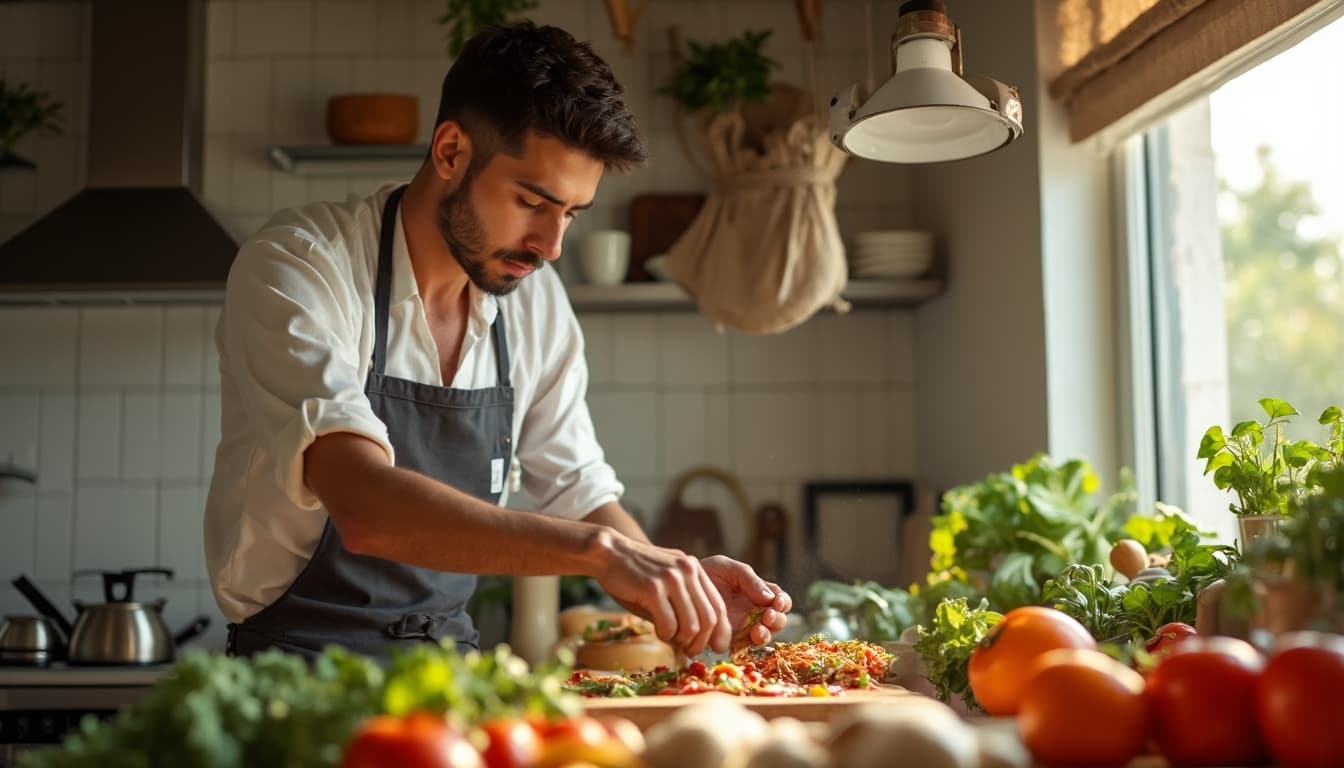Nourishing Connections: Building a Healthy Relationship with Food

In a world where food often becomes tangled in narratives of shame, guilt, or relentless criticism, cultivating a nourishing and positive relationship with what we eat has never been more important. Food is far more than fuel – it’s a connection to our cultures, our communities, and ourselves. But for many, that connection has become strained. We’re inundated with conflicting messages about how and what to eat, regional pressures to conform to certain dietary ideals, and, in some cases, the immense anxiety tied to appearances and body image. These challenges are magnified for some groups, including gay men, who face an intricate interplay of societal pressures surrounding food, fitness, and masculinity.
Understanding—and nurturing—a healthy relationship with food doesn’t just reshape what’s on your plate. It’s a journey toward balance, self-acceptance, and joy. By examining the broader emotional and cultural relationships with food, we can shift our narrative away from control and restriction and instead embrace empowerment, mindfulness, and celebration.
What Does It Mean to Have a Healthy Relationship with Food?
To explore what it means to build a healthy bond with food, it’s essential to acknowledge that eating isn’t merely about survival or sustenance. Every bite carries emotional, psychological, and cultural significance. Meals often evoke nostalgia, traditions, and deep-rooted memories. For some, sharing a simple homecooked dish can reconnect them to family legacies or childhood warmth. But, just as food can bring comfort, it can also serve as an emotional crutch—a way to self-soothe anxiety, boredom, or loneliness.
Nourishing Body and Mind Through Balanced Eating

Building a healthy relationship with food starts by shifting focus to nourishment over restriction or aesthetics. What we nourish ourselves with profoundly impacts both our physical and emotional well-being. A balanced diet—one that includes macronutrients like proteins, fats, and carbohydrates alongside essential vitamins and minerals—provides the foundation for vitality and mental clarity.
But where do you begin? Start by embracing whole, unprocessed foods:
- Vibrant fruits and vegetables
- Hearty whole grains
- Lean proteins
- Rich, healthy fats
Not only do these foods nurture our bodies, but they also awaken our senses through their vivid colors, textures, and flavors. Choosing meals that are as visually satisfying as they are nourishing can reignite the joy of cooking and eating.
Food as the Heart of Community
Enjoying this content? Support our work by taking a moment to visit the sponsor of this article
Visit SponsorFood doesn’t just feed individuals—it binds communities. Sharing a meal is one of the most meaningful ways we connect with others, offering opportunities for laughter, storytelling, and vulnerability. A group dinner doesn’t need to be a grand feast to foster connection; even a simple potluck can be a celebration of bonds strengthened and memories made.
Deconstructing Fitness Myths and Food Fears

Fitness culture and its ties to food often overshadow discussions about health. Social media and advertising bombard us with idealized versions of masculinity: rippling muscles, intense gym routines, and restrictive dieting. While physical strength and fitness are important, they shouldn’t eclipse the nuances of health and self-care.
Real strength isn’t measured by how many grams of protein you consume or how low your carb count is. It’s also about emotional resilience: accepting your body’s needs, honoring when it’s time for rest, and aligning your choices with what truly makes you feel whole. Let food be part of self-care rather than a metric of success or failure in a fitness regimen.
Shifting to a Positive Mindset Around Food
Let’s undo the damage that fear-based or restrictive food narratives can cause. Start small: recognize that no single meal or indulgence defines your health. The power lies in habits, not individual moments. Replace harsh self-criticism with curiosity. How does food make you feel? Are you listening to what your body needs, or battling what you believe it “should” look like?
In these moments, self-compassion is radical but necessary. Celebrate food as an ally in your journey rather than an adversary. Engage in supportive conversations around food, rather than critical ones. When we talk about meals, let it be with joy and gratitude, not self-judgment or comparison.
Resources for a Lifelong Learning Journey
The path to both knowledge and comfort with food is ongoing. Fortunately, there are countless tools available to guide you along the way. Books like Intuitive Eating by Evelyn Tribole or Salt Fat Acid Heat by Samin Nosrat offer a blend of emotional and culinary wisdom. Podcasts, such as Food Psych with Christy Harrison, delve into food culture and mental health with nuance and empathy.
In Closing: Food as Love, Food as Joy
Our relationship with food reflects more than what we eat—it’s a reflection of how we see ourselves, our communities, and our humanity. With each meal, we have the opportunity to reshape that relationship: to make it one built on love, gratitude, and care.
Instead of fearing food, let’s celebrate it. Prepare a meal as a gift to yourself. Share a table with friends and loved ones. Try new ingredients or revisit an old favorite recipe. In moments both big and small, food holds the power to nourish not just your body, but also your mind, heart, and soul.



